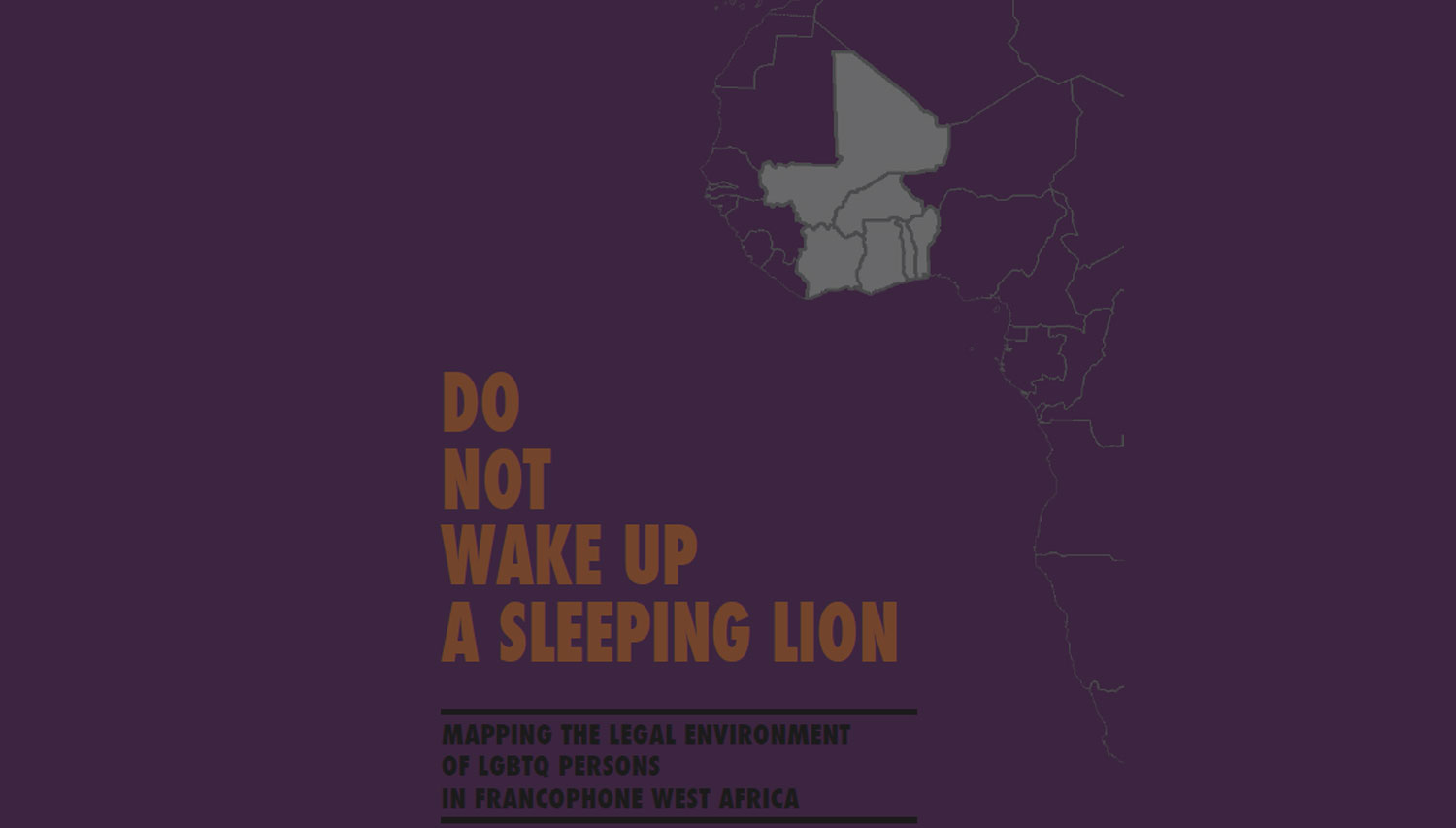Do not wake up a sleeping lion
An overview of the legal situation of lesbian, gay, bisexual, transgender and queer persons (LGBTQ) in West Africa is a paradox between the assertion of the universal character of human rights for all individuals on the one hand, and the violence, discrimination and outright denial of LGBTQ persons’ rights in several African countries on the other hand.
The universal nature of human rights is asserted in international human rights instruments. Most African countries acceded to the two key international covenants:
the International Covenant on Civil and Political Rights (ICCPR) and the International Covenant on Economic, Social and Cultural Rights (ICESCR) of December 16th, 1966. Articles 2 and 26 of the ICCPR and Article 2 of the ICESCR established a principle of non-discrimination in the enjoyment of the basic rights stated in the said covenants.
Thus, article 2 of the ICCPR provides:
“Each State Party to the present Covenant undertakes to respect and to ensure to all individuals within its territory and subject to its jurisdiction the rights recognized in the present Covenant, without distinction of any kind, such as race, color, sex, language, religion, political or other opinion, national or social origin, property, birth or other status.” The use of the expression “especially” and the specific mention of “other status” clearly show the non-specificity of the prohibited grounds for discrimination.
Article 26 of the ICCPR provides that:
“ All persons are equal before the law and are entitled without any discrimination to the equal protection of the law. In this respect, the law shall prohibit any discrimination and guarantee to all persons equal and effective protection against discrimination on any ground such as race, color, sex, language, religion, political or other opinion, national or social origin, property, birth or other status.” It emerges from the interpretation of the prohibited discrimination criteria in the enjoyment of the rights provided for by the general and specific organs
established by the United Nations as regards the protection of human rights, that the non-discrimination principle should also apply to sexual orientation and gender identity so as to guarantee rights to all individuals regardless of their sexual orientation and gender identity.

